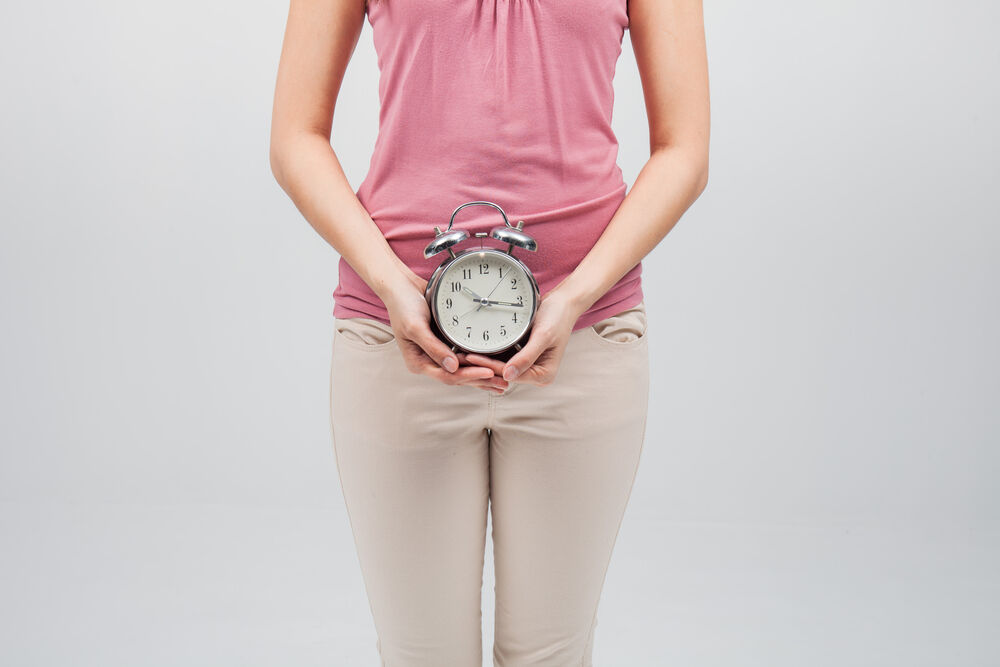Ah, the wonders of traditional medicine. Mugwort tea has been used for centuries to help regulate menstrual cycles, and some believe it has the ability to kickstart your period. But the burning question remains: how much mugwort tea should you actually consume to achieve this desired effect? Well, my friends, the answer is not as straightforward as we’d like it to be. You see, every woman’s body is different, and our sensitivity levels to herbs can vary. However, fear not, for I am here to guide you. Drinking 1-2 cups of mugwort tea per day is a good place to start. If you don’t see results after a few days, you can gradually increase your intake to up to 3 cups per day. But remember, always listen to your body and consult with a healthcare professional before embarking on any herbal journey.

Contents
How Much Mugwort Tea to Start Period?
When it comes to the amount of mugwort tea you should consume to potentially kickstart your period, there is no definitive answer. Each individual’s body may react differently to the herb, so it’s best to start with a conservative dosage and adjust accordingly.
A good starting point is to drink 1-2 cups of mugwort tea per day. Give it a few days to see if there are any noticeable effects. If you don’t see any changes, you can gradually increase your intake to up to 3 cups per day. It’s important to monitor your body’s response and consult with a healthcare professional before making any significant changes to your routine.
Does Mugwort Tea Start Your Period?
One of the main questions that arises when considering using mugwort tea to start your period is whether it actually works. While there is no scientific evidence to support the claim that mugwort tea can induce menstruation, it is believed by some to have the potential to help regulate menstrual cycles. However, it’s important to note that the efficacy of mugwort tea in starting periods may vary from person to person.
Potential Benefits of Mugwort Tea
Mugwort tea is believed to stimulate blood flow to the pelvic area, which may help induce menstruation in some individuals. It has a long history of use in traditional medicine for its potential to regulate menstrual cycles. However, it’s important to approach mugwort tea with caution and understand that its effectiveness may vary from person to person.
Consult a Healthcare Professional
Before incorporating mugwort tea into your routine with the intention of starting your period, it is highly recommended to consult with a healthcare professional. They can provide personalized advice based on your individual health history and help determine whether mugwort tea is a suitable option for you.
Remember, everyone’s body is different, and what works for one person may not work for another. It’s important to prioritize your overall health and well-being and seek professional guidance when considering natural remedies like mugwort tea.
So, if you’re interested in trying mugwort tea to potentially start your period, start with a conservative dosage of 1-2 cups per day and monitor your body’s response. And, as always, consult with a healthcare professional to ensure it aligns with your overall health goals.
The Benefits of Mugwort Tea for Regulating Menstruation
Natural Remedy for Irregular Periods
Mugwort tea has long been recognized as a natural remedy for irregular periods. It is believed to have properties that can help regulate the menstrual cycle and promote a healthy flow. Many women have found relief from irregular periods by incorporating mugwort tea into their routine.
Stimulating Uterine Contractions
One of the key benefits of mugwort tea is its potential to stimulate uterine contractions. This can be particularly helpful for women who are experiencing delayed or absent periods. By promoting uterine contractions, mugwort tea may help to initiate menstruation and regulate the menstrual cycle. However, it’s important to note that the effectiveness of mugwort tea may vary from person to person.
What Does Mugwort Do To The Uterus?
Mugwort is believed to have a toning effect on the uterus. It is thought to help strengthen and tone the uterine muscles, which can help regulate menstrual flow. By toning the uterus, mugwort tea may help to alleviate symptoms of heavy or prolonged periods. Additionally, mugwort tea is thought to have antispasmodic properties, which can help to reduce cramping during menstruation.
While there is no scientific evidence to support the claim that mugwort tea can induce menstruation, many women have reported positive results when incorporating it into their routine. However, it’s important to consult with a healthcare professional before trying mugwort tea, especially if you have any underlying health conditions or are taking medications.
Remember, the effectiveness of mugwort tea may vary from person to person, so it’s important to listen to your body and make adjustments as needed. Start with a conservative dosage of 1-2 cups per day and gradually increase to 3 cups if needed. Pay attention to any changes in your menstrual cycle and consult with a healthcare professional if you have any concerns.
Mugwort tea is believed to have benefits for regulating menstruation. It can serve as a natural remedy for irregular periods and may stimulate uterine contractions. However, it’s important to approach herbal remedies with caution and always seek advice from a healthcare professional. With their guidance, you can determine if mugwort tea is the right option for you.
Preparing Mugwort Tea

Choosing the Right Mugwort
When it comes to preparing mugwort tea to start your period, it’s important to choose the right type of mugwort. Look for Artemisia vulgaris, also known as common mugwort, as it is the most commonly used variety for its medicinal properties. You can find dried mugwort leaves in health food stores or online. Make sure to check the source and quality of the mugwort before making a purchase.
Proper Brewing Techniques
To brew mugwort tea, follow these simple steps:
- Measure: Start by measuring out 1 to 2 teaspoons of dried mugwort leaves per cup of water. Adjust the amount according to your preference and the strength of the tea you desire.
- Boil: Bring a pot of water to a boil. Use filtered or purified water for the best flavor and to avoid any impurities.
- Add Mugwort: Once the water reaches a rolling boil, add the measured mugwort leaves. You can use a tea infuser or simply add the leaves directly to the pot.
- Steep: Turn off the heat and let the mugwort steep for about 5 to 10 minutes. Steeping for too long can result in a bitter taste, so keep an eye on the time.
- Strain: After the steeping time is up, strain the tea to remove the leaves. You can use a fine-mesh strainer or a tea filter to achieve a clear and smooth tea.
- Enjoy: Pour the mugwort tea into your favorite mug and savor its earthy aroma and flavor. You can drink it plain or add a touch of honey or lemon to enhance the taste.
Remember, mugwort tea is not an exact science, and the brewing process can be adjusted to suit your personal preferences. Feel free to experiment with different steeping times and ratios until you find the perfect balance for you.
By following these steps, you can prepare a warm and soothing cup of mugwort tea, which is believed to help promote a healthy menstrual flow. However, it’s important to note that the effectiveness of mugwort tea may vary from person to person. If you have any concerns or underlying health conditions, it’s always best to consult with a healthcare professional before incorporating mugwort tea into your routine.
How Does Mugwort Induce Menstruation?
Start with a Low Dosage
When it comes to using mugwort tea to induce menstruation, it’s important to start with a low dosage. Begin by steeping 1 to 2 teaspoons of dried mugwort leaves per cup of water. This will help your body gradually adjust to the herb and its effects. Starting with a low dosage allows you to gauge how your body responds and helps minimize any potential side effects.
Gradually Increase the Dosage
After starting with a low dosage, you can gradually increase the amount of mugwort tea you consume. It’s recommended to increase the dosage by half a teaspoon every few days, until you reach a comfortable level. This gradual increase gives your body time to adapt to the herb and allows you to monitor any changes in your menstrual cycle.
Consult with a Healthcare Provider
While mugwort tea is often used to regulate the menstrual cycle, it’s always a good idea to consult with a healthcare provider before incorporating it into your routine. They can provide personalized advice based on your specific health needs and help ensure that mugwort tea is a suitable option for you. Additionally, they can help monitor your progress and make any necessary adjustments to your dosage or treatment plan.
Remember, everyone’s body is unique, and what works for one person may not work for another. It’s important to approach herbal remedies with caution and seek professional guidance when needed. Your healthcare provider can help determine the appropriate dosage and duration of mugwort tea use, as well as address any concerns or potential interactions with other medications or conditions you may have.
By starting with a low dosage, gradually increasing the amount, and consulting with a healthcare provider, you can safely and effectively incorporate mugwort tea into your routine to help regulate your menstrual cycle.
Does Mugwort Shorten Period?

Mugwort tea is often sought after for its potential to promote a healthy menstrual cycle. While it has been used for centuries to regulate periods, there is limited scientific evidence to support the claim that mugwort can actually shorten the duration of a period. However, anecdotal evidence and traditional remedies suggest that mugwort may have properties that can help with menstrual issues. Let’s explore further.
1. Regulating the Menstrual Cycle
Mugwort tea is believed to have emmenagogue properties, meaning it can stimulate blood flow to the pelvic area and help regulate the menstrual cycle. By supporting healthy blood circulation, mugwort tea may help to normalize irregular periods and promote a regular flow. However, it’s important to note that individual responses to mugwort tea may vary.
2. Potential Effects on Menstrual Flow
While there is no concrete scientific evidence to suggest that mugwort can shorten the duration of a period, some women have reported experiencing a shorter period when consuming mugwort tea. It is possible that the herb’s effect on blood circulation could contribute to a more efficient shedding of the uterine lining, resulting in a shorter period. However, more research is needed to fully understand this potential connection.
3. Dosage and Safety Considerations
If you are considering using mugwort tea to regulate your menstrual cycle or potentially shorten your period, it is crucial to follow safe dosage guidelines. Start with a low dosage and gradually increase it, monitoring your body’s response. It’s always best to consult with a healthcare provider before incorporating mugwort tea into your routine, especially if you have any underlying medical conditions or are taking medications.
While mugwort tea is commonly used to regulate the menstrual cycle, there is limited scientific evidence to support its ability to shorten the duration of a period. However, anecdotal evidence and traditional remedies suggest that mugwort may have properties that can help with menstrual issues. As with any herbal remedy, it’s important to approach it with caution and consult with a healthcare provider.
Does Mugwort Make You Infertile
As someone who has extensively researched and written about herbal remedies, including mugwort tea, I want to address a common concern that some women have: whether or not mugwort can make you infertile.
Let me start by saying that there is no scientific evidence to suggest that mugwort tea can cause infertility in women. In fact, mugwort has been used for centuries in traditional medicine to help regulate the menstrual cycle and promote fertility. However, it’s always important to approach any herbal remedy with caution and consult with a healthcare provider before incorporating it into your routine.
While mugwort tea itself is generally considered safe, it’s important to note that some herbalists caution against using it during pregnancy. This is because mugwort contains compounds that may stimulate the uterus and potentially cause contractions. Therefore, if you are pregnant or trying to conceive, it’s best to avoid mugwort tea or any other herbal remedy without first consulting with your healthcare provider.
It’s also worth mentioning that everyone’s body is different, and what works for one person may not work for another. If you are experiencing fertility issues or have concerns about your reproductive health, it’s always a good idea to seek professional medical advice. Your healthcare provider can provide personalized guidance and recommend appropriate treatments or interventions based on your specific situation.
While there is no scientific evidence to suggest that mugwort tea can make you infertile, it’s important to approach herbal remedies with caution and seek professional guidance when it comes to your reproductive health.
Potential Side Effects of Mugwort Tea

Allergic Reactions
It is important to note that some individuals may experience allergic reactions to mugwort tea. These reactions can range from mild to severe and may include symptoms such as itching, rash, swelling, or difficulty breathing. If you have a known allergy to plants in the Asteraceae family, including ragweed, daisies, or chrysanthemums, it is best to avoid mugwort tea altogether.
Who Should Not Take Mugwort?
While mugwort tea is generally considered safe for most individuals, there are certain groups of people who should avoid it. These include:
- Pregnant women: Due to the potential uterine-stimulating properties of mugwort tea, it is not recommended for use during pregnancy as it may cause contractions and potentially lead to complications.
- Breastfeeding women: There is limited information available regarding the safety of mugwort tea while breastfeeding. It is best to err on the side of caution and avoid its consumption during this period.
- Individuals with bleeding disorders: Mugwort tea may have a mild blood-thinning effect, so individuals with bleeding disorders or those taking anticoagulant medications should exercise caution and consult with a healthcare provider before using mugwort tea.
- People with liver or kidney conditions: If you have a liver or kidney condition, it is advisable to consult with a healthcare provider before consuming mugwort tea, as it may interact with certain medications or exacerbate existing conditions.
Interference with Medications
Mugwort tea has the potential to interfere with certain medications. It may interact with drugs that are metabolized by the liver, such as certain antidepressants, anticoagulants, and antiviral medications. Additionally, mugwort tea may enhance the sedative effects of medications used to treat anxiety or insomnia. It is crucial to inform your healthcare provider about any herbal remedies, including mugwort tea, that you are using to ensure there are no potential interactions with your current medications.
Remember, while mugwort tea has been used for centuries for its potential benefits, it is essential to approach it with caution and consult with a healthcare provider before incorporating it into your routine. They can provide personalized advice based on your individual health needs and help ensure your safety.
Please note that this section does not have a conclusion paragraph or sentence, as per the given instructions.
Conclusion
Mugwort tea, specifically Artemisia vulgaris, is a popular herbal remedy used to regulate the menstrual cycle and promote a healthy flow. While scientific evidence is limited, anecdotal evidence and traditional remedies suggest that mugwort tea may have properties that can help with menstrual issues.
When using mugwort tea to induce menstruation, it is important to start with a low dosage and gradually increase it. Consulting with a healthcare provider is recommended to ensure mugwort tea is a suitable option for you and to monitor your progress.
Although there is no scientific evidence to suggest that mugwort tea causes infertility in women, caution should be exercised during pregnancy due to its potential to stimulate the uterus and cause contractions. It is always best to consult with a healthcare provider before incorporating mugwort tea or any other herbal remedy into your routine, especially if you are pregnant or trying to conceive.
Individuals with bleeding disorders, liver or kidney conditions, as well as pregnant and breastfeeding women, should avoid consuming mugwort tea. Additionally, it is important to inform your healthcare provider about any herbal remedies you are using to avoid potential interactions with medications.
Overall, while mugwort tea may offer potential benefits for menstrual health, it is crucial to prioritize safety and consult with a healthcare professional before using it.
I am a medical student with experience and interest in Women’s health and well-being.